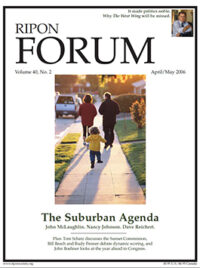The legislative agenda developed by the suburban caucus is meant to address our everyday concerns: the safety of our children at school, congested and overcrowded roads, and dwindling open space, for instance.
At the very top of that agenda is health care. Seniors enjoying their retirement, couples raising children, and individuals in the suburbs face barriers to quality, affordable health care.
Overcoming these barriers and improving our overall health care system requires the adoption and use of electronic medical records and “e-prescribing” systems. Health care information systems can save lives, improve the quality of care, and lower costs. While the health care we receive in the suburbs is state-of-the-art, the way patients, physicians, pharmacies and other providers record, retain, and securely exchange health information is not. It’s a pen and paper system. Without new technologies and digital information systems, health care quality cannot take the next leap forward.
Consider that a person rushed to an emergency room may not get the best treatment because their private records are locked in a physician’s office across the street – and not available to the emergency room doctor treating them in a potential crisis such as a car accident, a heart attack or serious infection. An interoperable health information system would make accurate health information available to us and our doctors when we need it. We know the consequences of a pen and paper system. A landmark U.S. Institute of Medicine study from 1998 found that preventable medical errors — such as misread hand-written prescriptions — caused as many as 100,000 deaths in America each year, far more than even motor vehicle accidents.

Lost or incomplete medical records cost the health system billions and the economy millions more in lost time at work. Some estimates put just Medicare’s cost for duplicative testing at $5.4 billion a year. Suburban families bear these costs for themselves and for Medicare and Medicaid beneficiaries as well.
Despite its promise for better health care at lower cost, widespread adoption of electronic health records and information systems has been disappointingly slow. The current system of overlapping or conflicting state and federal laws is complicated and not designed for an era in which records can be transmitted electronically anywhere, accurately and securely.
That is why I introduced legislation to help develop a health information technology system with uniform privacy and security standards. My legislation, supported by 41 bipartisan co-sponsors, will enhance privacy protections and allow for the secure health information systems we deserve in the digital age. And it helps hospitals and doctors’ offices to coordinate so everyone uses health information systems that can talk to each other.
And as suburban families change jobs, it requires their health insurance to change with them. Consumer-controlled plans like Health Savings Accounts (HSA) are portable, and can be brought with you from job-to-job. With the benefit of using pre-tax dollars, HSAs can go to pay for things employer plans may not cover — like braces for our kids. But greater use of HSAs requires another major improvement in our delivery of health care: more information available to the individual on the quality of care providers deliver and the price they charge. Medicare and some of the big employers are leading the way, developing specific measures of quality and publicly reporting provider performance. As Chairman of the House Ways and Means Health Subcommittee, I will continue working to improve care quality and to empower our families to be better health care consumers.
Of course, improving the quality of our health care would be in vain if suburban families cannot afford that care in the first place. I was proud to offer the law creating the state children’s health insurance plan (SCHIP) in the House, and it has made health care more affordable and accessible for millions of children in the last nine years.
In the short term, however, we can do more to make sure all children eligible for public safety net health programs like SCHIP are enrolled in them. Studies show that families of these children are not aware that these programs are available to them. Along with Dr. Bill Frist in the Senate, I have introduced in the House the “Covering Kids Act,” legislation authorizing $100 million in federal grants to states, schools, community and non-profit groups to conduct the creative outreach that we know works.
For suburban families with so often two parents working, the goal of maintaining family health, minimizing work disruptions and preventing illness can be far more effectively accomplished with advanced, broadly disseminated health information and health care that is more portable and affordable.
Concerns about cost and quality demand that we continue working to make such a system a reality for families in every community across America.
Nancy Johnson represents the 5th District of Connecticut in the U.S. House of Representatives.




